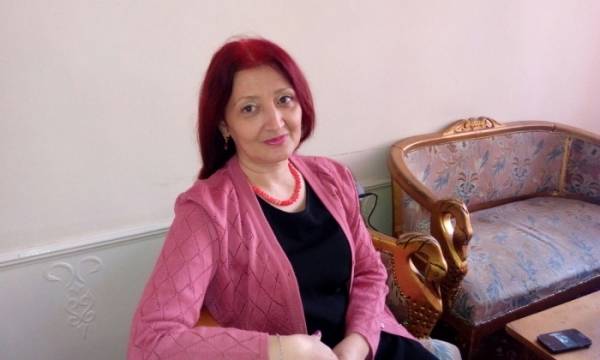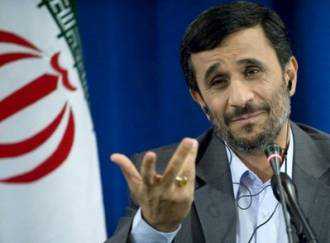soursce –
Gulnara Inandzh
Director International Online Information Analytic Center Ethnoglobus
While it is still too early to speak in detail about the results of the behind the scenes talks between Moscow and Washington about the resolution of the Georgian-Russian conflict, it is clear that these discussions, like the calculations of all those involved in this conflict, reflected not just the immediate situation in Georgia and its two breakaway republics, Abkhazia and South Ossetia. Some of these larger or more distant goals have been mentioned by various officials and analysts, but some of the most interesting, even if they remain in the realm of speculation, say a great deal about just how consequential this conflict is.
Many, especially in the Russian capital, saw Georgia’s moves as part of a larger U.S.-sponsored effort to push Russia out of the Caucasus and to place American bases there in order to protect American energy interests. Others, especially in Washington, viewed what happened as a Russian effort to bring a former Soviet republic to heel and thus to demonstrate not only that it is a world power that can take actions independently of what others think but also that other former Soviet republics must consider Moscow’s views first and foremost.
There is more than a little truth in each of these perceptions. Obviously, the Georgian conflict has had a serious impact on the energy situation throughout the Caspian region and thus on the dynamics of prices in the world market, and equally obviously, both the United States and Russia want to be able to protect their interests in the region, interests that are sufficiently at odds that it is difficult to imagine just what a negotiated settlement in this area will look like.
Indeed, by provoking a war with Georgia, the Kremlin was able to create obstacles to the transportation of energy resources via routes bypassing Russia. As a result, it created the conditions for the realization of Iran’s Neka-Jask project, which envisages the transportation of the Caspian oil and thus allows for Moscow to preserve its control over the transportation of energy resources from the region. The statement made by the deputy executive director of the Iranian National Oil Company for investment issues Hojatollah Ghanimifard that the Iranian Neja-Jask pipeline will be a serious competitor to and eventual replacement of the Baku-Ceyhan pipeline [4] attests to this line of thinking. In the meantime, the problems arising with pipelines in Georgia have forced Azerbaijan for the first time to send its oil into Iran. [5]
But as large an issue as the control of the flow of hydrocarbons out of the Caspian basin is, there are clearly still greater equities involved. When Russia launched its drive against Georgia, the international community did not devote much attention to the ways in which this may have been a move by a great power in the complicated politics in the Middle East. It is important to note that almost at the same time as the events in Tskhvinvali began, there were major American, British and French naval exercises in the Persian Gulf, an action that dramatically increased the number of ships and hence firepower in that region. The exercises were explicitly intended to prevent Iran from taking any action in the Straits of Hormus which might impede the flow of oil, but at least some analysts, pointing to statements in Washington and Jerusalem, have suggested that these forces might have been assembled to launch an attack on Iran. [1] And hence it could well be that in the complex play of forces which always affect international relations, the Russian move into Georgia may have prevented an American-led move against Iran. Some evidence points in that direction.
Most notably, as the events in Tskhinvali and the international reaction to it were unfolding, Turkish prime-minister Erdogan visited Russia with his new “Caucasus Stability and Cooperation Platform” – an initiative Moscow wholeheartedly embraced. Shortly afterwards Iran’s President Mahmoud Ahmadinejad paid a “working visit” to Turkey – his first visit to a NATO country which Israel harshly objected. [2] These developments attest to the fact that Ankara and Russia combined their efforts to prevent the United States and Israel from an attack against Iran.
One additional report that lends credence to this reading was the statement of Haled Mashal, the head of Hamas which won the Palestinian elections. He too was received both in Moscow and in Ankara. And by this maneuver, Turkish and Russian officials demonstrated their willingness to use the Palestinian lever of influence in the event of the use of force against Iran, something that neither saw as being in its economic or geopolitical interests.
Of course, the place Azerbaijan with its rapidly developing economy has in the calculations about the Georgian-Russian military conflict should not and cannot be ignored. Some in Azerbaijan were extremely critical of the government for failing to react sharply against Russian aggression, given Azerbaijan’s membership in GUAM and its strategic partnership with Tbilisi. But President Ilham Aliyev continued to pursue his step by step balanced diplomacy and spoke only about the importance of maintaining the territorial integrity of states, something Azerbaijan itself is very much interested in.
That was striking given the role Baku had always played in maintaining friendly ties with Georgia, in supplying its neighbor with oil and gas and thereby mitigating its energy, and hence political as well, dependence on Russia.
But of course there is yet another implicit negotiation going on here. That concerns the competition between Moscow and Washington for influence in the former Soviet republics. Moscow’s actions in Georgia sent a clear message to Ukraine, Moldova and Azerbaijan, who also have frozen conflicts on their territories that Russia can intervene if it chooses to, a new element in the foreign policy calculations of all these states. Indeed, it may be that Moscow was especially interested in sending this message to Azerbaijan given the upcoming electoral campaign in which some candidates will push for greater integration with the West.
In that connection, it is worth noting that at the time of the crisis, David Harris, the executive director of the Jewish Committee of America, was in Baku. Considering the role of the Jewish lobby in the US and the well-known sympathy of that lobby for Azerbaijan, it is entirely possible that Harris made clear that Baku would be defended from aggression from its northern neighbor. [3] Whether that message was received, however, is unclear, given that the United States has not yet taken any dramatic actions as opposed to tougher rhetoric in response to Russian moves in Georgia.
In short, Baku appears likely to become a place des armes not for military action but rather political discussions not only about its own status but about the status of Iran in the world and the influence of Moscow and Washington in the post-Soviet states.
Notes
[1] See http://www.ethnoglobus.com/?page=full&id=344 (last accessed August 21, 2008).
[2] “Iranian President Makes First Visit to Turkey”, VOA News, August 14, 2008, available at (last accessed August 21, 2008).
[3] (last accessed August 21, 2008).
[4] “Иран планирует составить конкуренцию экспортному нефтепроводу Баку-Джейхан”, Iran News, August 12, 2008, available at https://iran.ru/news/politics/52773/Iran_planiruet_sostavit_konkurenciyu_eksportnomu_nefteprovodu_Baku_Dzheyhan (last accessed August 30, 2008).
[5] “Азербайджан впервые отправил через Иран партию нефти на Запад”, Iran News, August 27, 2008, available at https://iran.ru/news/economics/53024/Azerbaydzhan_vpervye_otpravil_cherez_Iran_partiyu_nefti_na_Zapad (last accessed August 30, 2008).






